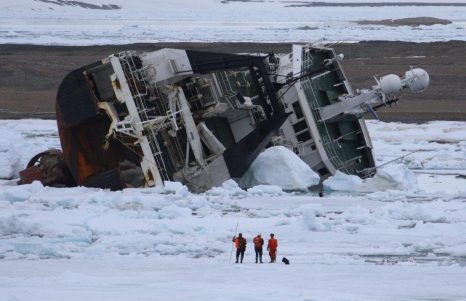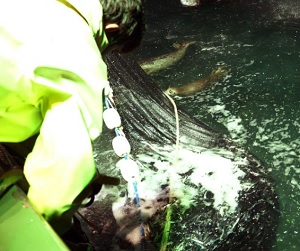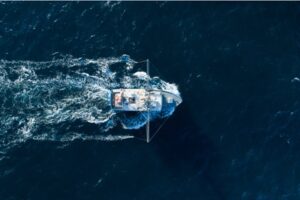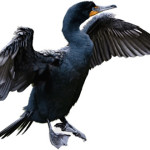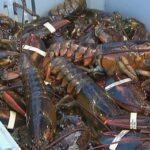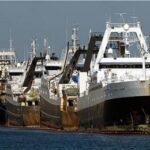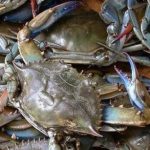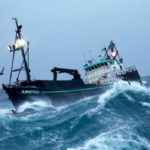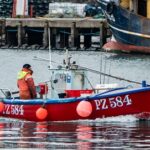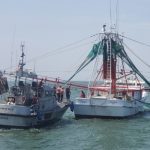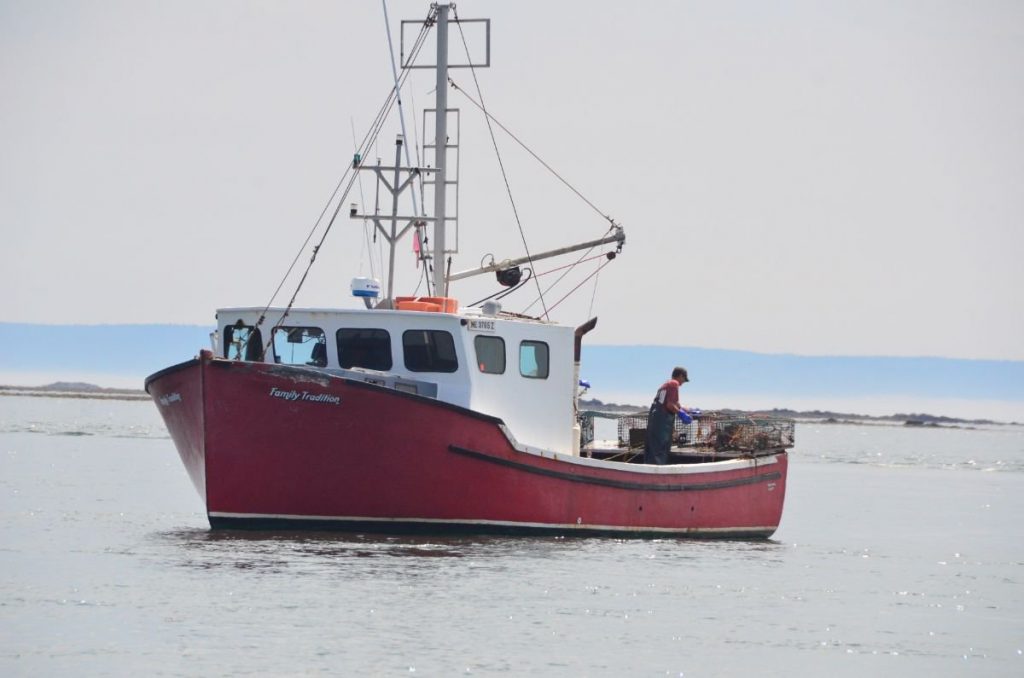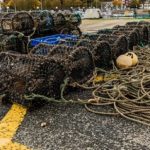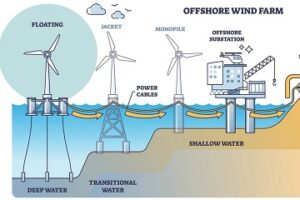Monthly Archives: August 2019
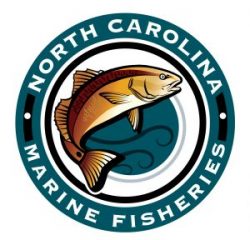
N.C. Marine Fisheries Commission votes to close flounder fishing
The N.C. Marine Fisheries Commission adopted the Southern Flounder Fishery Management Plan Amendment 2 as proposed by the Division of Marine Fisheries, giving the director of the Division of Marine Fisheries flexibility with the commercial and recreational seasons so long as they meet the statutorily required harvest reductions. The Division of Marine Fisheries anticipates issuing a proclamation next week that closes the commercial and recreational season around Sept. 4. >click to read< 12:21
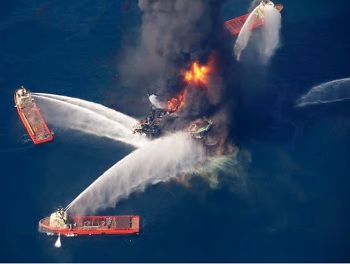
What Newfoundland and Labrador could learn from the worst offshore oil disaster in U.S. history
Marine scientist Donald Boesch says the controversy fuelled by recent oil spills off Canada’s East Coast has some “fairly interesting and striking comparisons” to his past work examining how the offshore (oil) industry is managed, as part of a U.S. inquiry into the Deepwater Horizon disaster.,,, Boesch says one of the most critical lessons the commission learned is that the U.S. agency overseeing offshore oil in the gulf had a conflict of interest built into its mandate.,,, Critics have accused the Canada-Newfoundland and Labrador Offshore Petroleum Board (C-NLOPB) of having a similar conflict. >click to read< 10:26
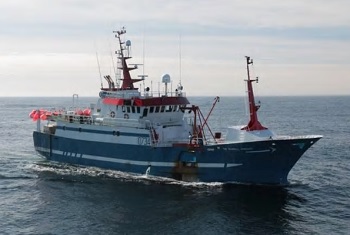
Clearwater keeps sustainability label for offshore lobster fishery following audit
Auditors imposed conditions on Clearwater, downgraded its ratings and concluded “there is evidence of systematic non-compliance in the fishery.” The company said it is pleased with the outcome.,,, The independent audit was ordered after Clearwater was convicted of a “gross violation” in its lobster fishery in September 2018. The company pleaded guilty to illegally storing thousands of traps at sea after,,, >click to read< 09:52

‘Deadliest Catch’ Camera Crew: Inside the gear, skill, physical endurance needed for 30-foot swells, 20 hour days, and shooting at night
For 15 seasons Discovery’s “Deadliest Catch” has been documenting the journey of fishing ships to one of the most remote places in the world, the Bering Sea, to catch king crab and snow crab. In an environment where severe weather and high swells are frequent, it is one of the most difficult and dangerous places imaginable to film. It is also one of the most demanding jobs in all of television, requiring a set of skills not normally asked of a Hollywood camera department. Here’s eight ways the camera team survives the hardest job in television, and still gets astounding images. Video’s, >click to read< 20:02
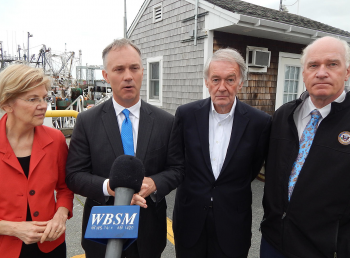
S.O.S. Howie Carr, New Bedford Needs You – “we need to get a message to Trump.”
Richard Canastra a member of the Massachusetts Governor’s Seaport Advisory Council, the New Bedford Economic Development Council, and the New Bedford Council on Commercial Fishing tells me U.S. Senators Elizabeth Warren and Ed Markey, both Democrats, have done zilch on a range of important issues critical to the industry, from funding of mandatory government monitoring to outdated data used to determine the strength of fishing stocks. Canstra says “we need to get a message to Trump.” Since Warren and Markey are completely ambivalent to the needs of the fishing community and refuse to speak with the president,,, >click to read< 17:41
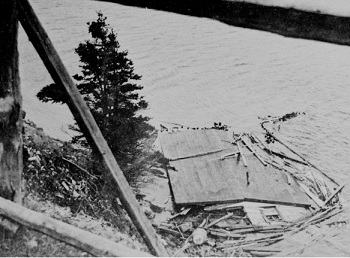
A disastrous tsunami’s lethal legacy in Newfoundland
On Nov. 18, 1929, fisherman Patrick Rennie watched from higher ground in Lord’s Cove, Nfld., as a barrelling tsunami washed over his home, his wife and their four youngest children within, and pulled it into the harbour. Just over two decades later, in January 1951, Rennie fell victim to whatever combination of diseases had been ravaging his lungs for years—TB, silicosis, cancer—and died at age 60. There is a through line between those two events, hard to discern on the surface but laid bare in haunting prose by Linden MacIntyre in the most evocatively titled book of the year, The Wake: The Deadly Legacy of a Newfoundland Tsunami. >click to read< 13:52
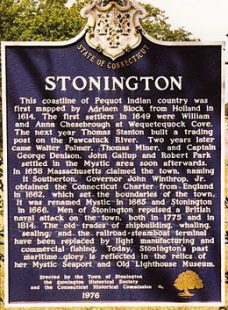
Designs for Stonington Town Dock pier to be presented Aug. 29
The town will present possible designs to protect the south pier of the Town Dock at 6:30 p.m. Thursday, Aug. 29, at the La Grua Center in the borough. According to the announcement for the event, “community leaders initiated a project to evaluate the condition of the South Pier and develop plans to ensure that this asset is in good repair for the future.” The pier is leased by the Southern New England Fisherman’s & Lobstermen’s Association, who dock their boats there and use its facilities. >click to read< 13:30

Gloucester Fishermen’s Memorial Service Saturday, Aug. 24, 5 PM
Fishermen’s Memorial Service, 5 p.m., procession from the American Legion, down Middle Street and onto Stacy Boulevard led by drummers. Carry flowers or oars in memory of fishermen lost to the sea. All welcome. We will post any updated information as we find it. >click to read< in the Gloucester Daily Times 12:05
August 7, 2016, Fifteen Years Ago Lives Were Lost Aboard The Starbound- My Cousin Joe Marcantonio Speaks Out About The Events Which Took Place That Night – >click to read<
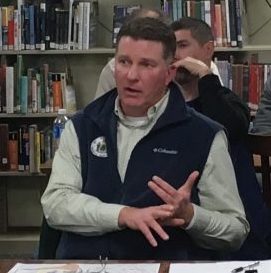
Maine: Second round of meetings scheduled on right whale issue
Earlier this week, DMR Commissioner Patrick Keliher announced that he would hold a second round of meetings with each of the state’s seven Lobster Zone Management Councils to consider area-by-area suggestions of how to deal with the National Oceanic and Atmospheric Administration’s proposed rule that would require a 50 percent reduction of vertical endlines on lobster traps in much of the Gulf of Maine. >click to read< 11:27
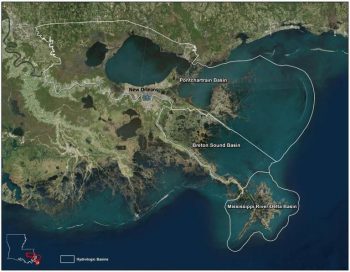
Fishermen warn Miss. Coast will pay steep price in new plan to save Louisiana wetlands
Fishermen in South Louisiana have a warning for the Mississippi Coast: If you think the Bonnet Carré Spillway has wreaked havoc in the Mississippi Sound, just wait until Louisiana gets permission for a new diversion of Mississippi River water.,,, Two scientific studies of three Mississippi River diversions already in place, the most recent out of Louisiana State University, document land loss. The state and big environmental groups are pressing ahead with the two proposed river diversions, expected to consume more than $2.2 billion in funds from the BP catastrophe in 2010. >click to read< 10:47
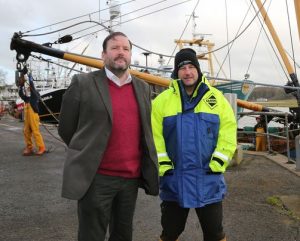
Skipper claims scallop boats being displaced from fishing grounds by wind energy schemes
Kirkcudbright scallop boats are being displaced from traditional summer fishing grounds by wind energy developments, according to a skipper. Steven Girgan estimates up to 15 vessels have abandoned seas off Wick and Montrose for waters elsewhere. Underwater cables, turbine towers and buried rock make trailing dredging gear too dangerous, he claims. Huge areas now off-limits include SSE’s 84-turbine Beatrice windfarm, in the outer Moray Firth, which went fully operational in June. >click to read< 08:40
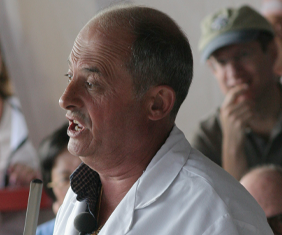
Fishermen question settlement that could net convicted ‘Codfather’ millions
This week, Rafael was hit with more than $3 million in fines and a lifetime ban as part of a settlement agreement in a civil case brought against him by the National Oceanic and Atmospheric Administration. But under the terms of that deal, Rafael could walk out of prison two years from now a multimillionaire. Although the settlement required he sell off his vessels, fishing permits and the valuable fishing quota that comes with them, Rafael may keep the proceeds — and he is marketing his fleet to the highest bidder. > click to read< 22:53

Sam Parisi remembers the Captain and Crew of the F/V Capt. Cosmo
Forty one years ago, Gloucester fishing family’s lost six fishermen, Cosmo Marcantonio, know as Capt. Cosmo, along with five other Gloucester crew members ranging in ages from sixty to twenty one, due to an unexpected storm. The vessel sank about one hundred and eighty miles east of Cape Cod. Normally in September, the weather at that time year is pretty good, not like the winter months. I grew up with Cosmo, >click to read< 22:09
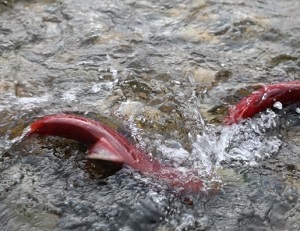
‘They’re flat broke’: Salmon fishermen demand disaster relief for failed season
The Pacific Salmon Commission is forecasting a total return of only 447,000 sockeye salmon to the Fraser, one of the world’s richest salmon rivers, this year. “This is the lowest run size ever estimated since estimates began in 1893, and lower than the previous record for lowest run size of 858,000 observed in 2016,” its report read.,, “Many of them are in debt because they got the boat and gear ready for the season and they [invested] quite heavily in doing that. And then they put fuel in their boats and went to the fishing grounds and then caught nothing.” >click to read< 15:24

Two men arrested for being in possession of 38 striped bass, exceeding their limit by 37!
The Rhode Island Department of Environmental Management Division of Law Enforcement today announced the arrest of Robert Majors, age 41, of Bristol and Peter Parente, age 53, of West Greenwich. The two men were arrested yesterday by DEM environmental police officers for being in possession of 38 striped bass. Both are Massachusetts commercial fishermen and were charged with 37 counts of exceeding the daily possession limit of one fish per day,,, The practice of taking striped bass from Rhode Island state waters and/or from the EEZ, and selling them in Massachusetts, is prohibited. >click to read< 14:23
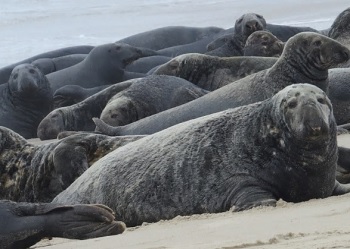
Seals are overfishing at unsustainable rates! Gulf of St. Lawrence cod extinction ‘highly probable,’
“At the current abundance of grey seals in this ecosystem, recovery of this cod population does not appear to be possible, and its extinction is highly probable,” the report says. DFO fish biologist Doug Swain said the cod population is now about five per cent of levels in the 1980s, and the downward spiral is accelerating despite a moratorium on a directed cod fishery in the Gulf since 2009. The problem is an “extremely high” and “unsustainable” death rate for cod five years or older. >click to read< 11:29
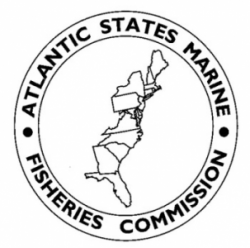
Catch Shares? NOAA Seeks Comments on a Control Date for the American Lobster Fishery
NOAA is seeking comments on a control date (a date that may be used to establish eligibility) of April 29, 2019 for the American lobster fishery, as we consider ways to reduce threats of entanglement by fixed-gear fisheries to North Atlantic right whales.,,, Following the TRT meeting the Atlantic States Marine Fisheries Commission’s Lobster Management Board established a control date of April 29, 2019, and recommended that NOAA Fisheries do the same for federal waters. We are notifying the public that we may develop a future rulemaking to complement any actions taken by the Commission, and that future participation in the fishery may be based on participation as of April 29, 2019. >click to read< 10:39
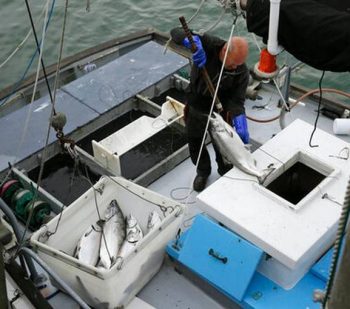
California king salmon rebounds after drought
Reeling in a fish “feels good every time,” but this year has been surprisingly good,,, Commercial salmon catches have surpassed official preseason forecasts by about 50%, said Kandice Morgenstern, a marine scientist with the California Department of Fish and Wildlife. Harvests have been particularly strong in Morro Bay, Monterey and San Francisco, but weaker along California’s northern coast. This year’s adult salmon are the first class to benefit from record rainfall that filled California rivers and streams in early 2017, making it easier for juvenile chinook to migrate to the Pacific Ocean, where they grow into full-size fish. Photo’s, >click to read< 09:50

BOURNE: Lobstermen seek help in protecting right whales, Testimony cites burden on local industry.
Commercial lobstermen urged federal regulators Wednesday to take Canada to task for its failure to protect North Atlantic right whales and to remember that local lobstermen carrier a heavier burden of regulation than others in U.S. waters. “We as lobstermen do not want to see harm come to the right whale,” Plymouth lobsterman Tom O’Reilly said at a public forum at Upper Cape Cod Regional Technical School, the eighth in a series of meetings held this month,,, >click to read<08:40

Gloucester: Lobstermen push against whale rules – ‘We’ve borne the brunt’
The evening began with a presentation from NOAA Fisheries’ Mike Asaro and Colleen Coogan that offered a historical backdrop on the status of the North Atlantic right whale stock and an explanation of the specific protectionist measures adopted in April by the Atlantic Large Whale Take Reduction Team.,, In Massachusetts and New Hampshire, lobstermen are tasked with reducing their vertical lines by 30 percent. In Maine, where there has been significant pushback by state officials and the nation’s most formidable lobster fleet, the target is significantly higher — 50 percent. Then came the comment period and the usual choosing of the sides. Photo’s, >click to read< 22:04
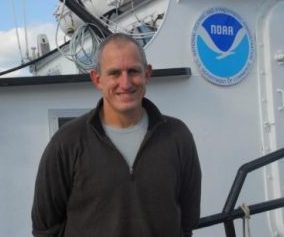
Troubling questions, concerns raised about off-shore wind farms
Oceanographer Jon Hare listed the effects of offshore wind development on the marine environment. There’s disturbance to the sea floor during installation of turbine platforms.,,,“Putting a pile into the sediment in essence is habitat alteration,” said Hare, a science and research director with Northeast Fisheries Science Center.,,The questions about offshore wind, of course, aren’t limited to the $2.8-billion Vineyard Wind project,,,,but there are more than a dozen proposals in the works all along the Atlantic Coast and plans for the Great Lakes and the West Coast. >click to read< 21:06
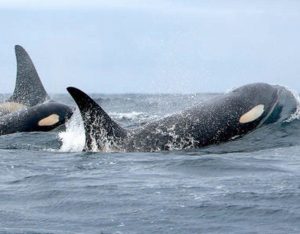
PCFFA Reacts to News of Jeopardy Finding for Salmon, Southern Resident Killer Whales
As reported today in the LA Times, the National Marine Fisheries Service determined in an important draft biological opinion [link to the document here] that the changes to California’s Central Valley Project (CVP) and State Water Project (SWP) operations championed by the Department of the Interior would result in jeopardy to spring and winter run Chinook salmon, steelhead trout, and southern resident killer whales (SRKW). The draft opinion was transmitted to the Department of the Interior, which immediately convened a team of outside lawyers and scientific staff from its own agencies to adulterate NMFS science and suppress the document’s findings. >click to read< 20:18
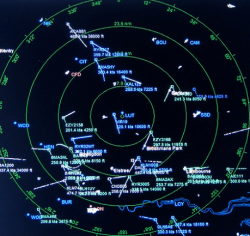
Wind turbines and radar mix poorly
Vineyard Wind’s 84-turbine wind farm, slated for an Atlantic lease area about 15 miles south of Martha’s Vineyard, effectively had the rug pulled out from underneath it August 9, when the Department of the Interior announced the Bureau of Ocean Energy Management (BOEM) would hold off signing a Final Environmental Impact Statement (FEIS) and re-examine potential impacts posed by the project. Radar was not specifically cited as something the feds would take a second look at. However, weather and aeronautical radar are all well-documented as being adversely affected by wind turbines, and a handful of studies show marine radar is also hampered by wind turbines. >click to read< 18:17
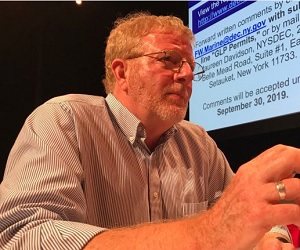
Long Island Fishermen sound off on plan for commercial fishing permit system
Fishermen from across Long Island sounded off about the states draft plan to overhaul the commercial fisheries licensing system, with some outraged at the prospect of losing long held permits. Two dozen fishermen showed up at the Bishop Molloy Recreational center in Point Lookout Tuesday to weigh in on the plan drafted by Maine fisheries consultant George LaPoint,,, >Click to read<17:41
Athearn Marine Agency Boat of the Week: 105′ Steel Midwater/Shrimp Freezer Trawler, Cat Powered
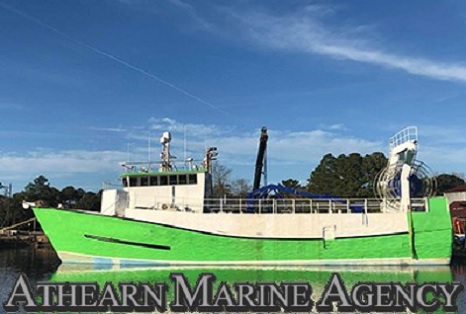 Specifications, information and 25 photos >click here< To see all the boats in this series, >click here<15:46
Specifications, information and 25 photos >click here< To see all the boats in this series, >click here<15:46
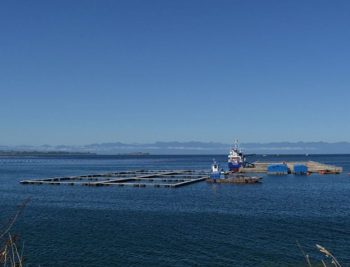
Latin America Reckons With a Fish-Farming Boom, industry cannot be allowed to harm ocean habitats
For a region plagued by stop-and-go growth, aquaculture is a boon. But problems have followed plenty. The blue revolution may not be as damaging to the environment as the one that reinvented global agriculture (farmed fish consume far less feed and energy than chickens, pigs or cattle do), but algae blooms, pests and pathogens, and overuse of antibiotics do a lot of dirty work. Chile repeatedly has seen huge schools of farmed fish break out of pens into the open ocean, where they threaten to overrun wild species and spread new diseases. >click to read< 14:58
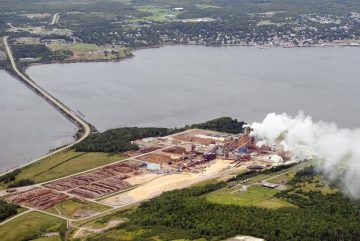
Fishermen’s groups seek candidates’ stance on Nova Scotia pulp effluent
In a joint statement released Monday, the coalition, representing the Gulf Nova Scotia Fleet Planning Board, Prince Edward Island Fishermen’s Association, Maritime Fishermen’s Union and Pictou Landing First Nation, says it will be seeking the position of all local federal election candidates on Northern Pulp’s proposed effluent pipeline. The coalition maintains the pipe would, on a daily basis, release between 65 and 87 million litres of effluent into the Northumberland Strait, “one of our most important commercial fishing areas.”,,, It points out the area falls under the Canadian Fisheries Act and is the jurisdiction of the Department of Fisheries and Oceans Canada. >click to read< 12:49
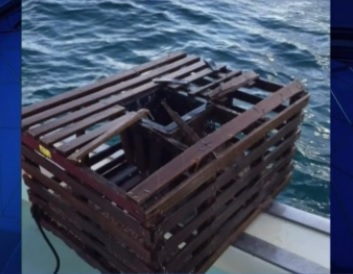
Florida Keys Eight no-fishing zones proposed in the Keys to protect threatened corals and marine life
Federal environmental regulators Tuesday unveiled major new proposals to protect marine life and corals that would limit fishing, restrict what cruise ships can dump at sea and regulate the boats on which many people live near shore.,,, And in a move that will likely cause controversy in the fishing industry, NOAA, the federal agency that oversees the waters surrounding the island chain, called for adding eight more zones in Keys waters where both commercial fishing) and recreational angling would be prohibited. >click to read< 10:12






